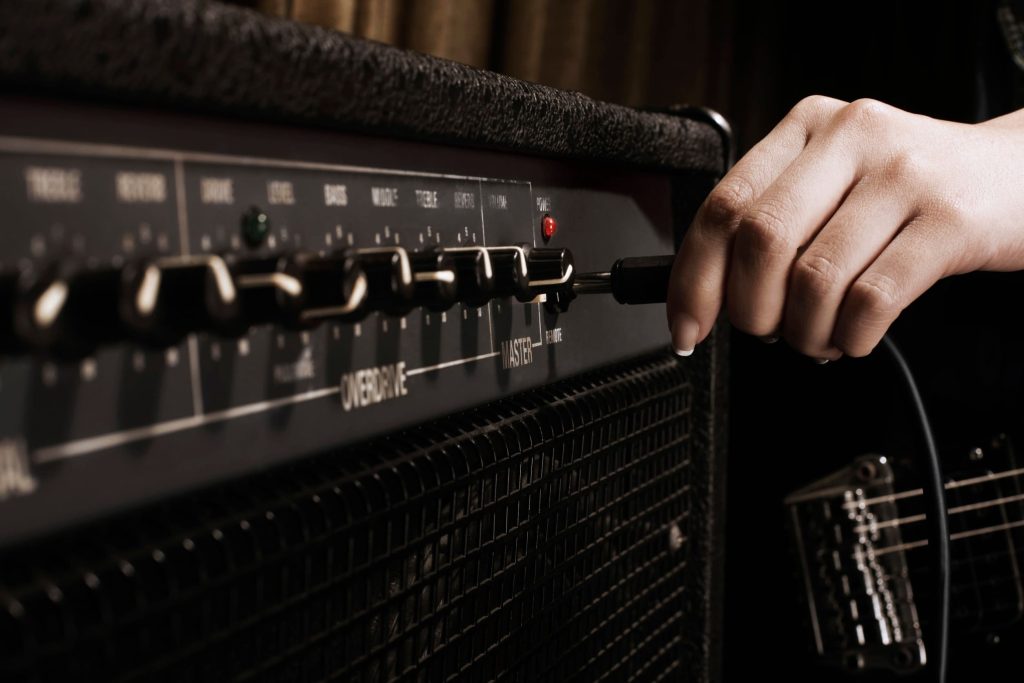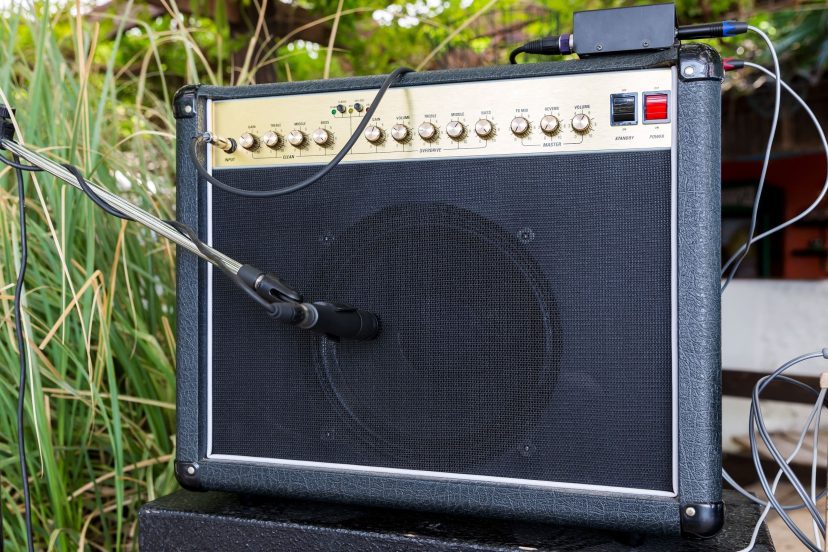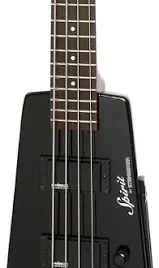Best Bass Practice Amp: Ultimate Bassist’s Guide
Intro Best Bass Practice Amp
Whether you’re a beginner or an experienced bass player, investing in the Best Bass Practice Amp is a vital part of your musical journey. This guide will help you navigate your options, highlighting the best and worst amps under $300 and providing you with the tools to make an informed decision.
The Importance of a Good Bass Practice Amp
An effective bass practice amp is not just an accessory, but a crucial component in the toolkit of a bassist. It plays an integral role in shaping your sound, enhancing your practice, and fine-tuning your skills. Imagine being able to practice at any hour, without the worry of disturbing those around you. This is one of the major advantages of owning a bass amp.
A good quality practice amp transforms the task of practicing from a mundane routine into an enjoyable and productive session. It allows you to pick up on the subtleties of your bass, helping you to cultivate your unique tone. An amp of high quality will give you a faithful representation of your sound, rather than coloring or altering it.
However, the challenge lies in identifying the right one amidst a plethora of options available in the market. From considerations of sound quality, size, wattage to additional features, several factors come into play while choosing the perfect bass practice amp. Navigating through these options can be overwhelming, but the effort is worthwhile.
A poor choice can lead to persistent reliability issues, less than ideal sound quality, or weak construction. On the other hand, a wise choice of a bass practice amp can significantly elevate your musical journey, allowing you to discover new dimensions of your sound and aiding in the development of your skills.
The Best Bass Practice Amps Under $300
Within the $300 price range, you’ll find several outstanding bass amplifiers that combine excellent sound quality, durability, and mobility. Standout options include the Fender Rumble 40 V3, distinguished for its crisp, potent sound and light frame, making it easy to move around.
Another strong contender is the Ampeg BA108V2. It doesn’t just offer reliable sound performance, but also features a solid build and a classic aesthetic, reminiscent of old-school amps.
Lastly, the Orange Crush Bass 50 should not go unmentioned. This amp’s unique features, like its built-in tuner and overdrive capability, make it an exceptional choice for bassists looking for a bit more versatility in their practice sessions.
These bass practice amps under $300 not only ensure great sound production but also represent excellent value for money, proving that good quality doesn’t always have to come with a hefty price tag. When deciding on a practice amp, these models should definitely be at the top of your consideration list.
What to Look for in a Bass Practice Amp
In the pursuit of finding the ideal bass practice amp, you need to keep a few essential considerations in mind. Foremost is the sound quality. An amp that cannot deliver a reliable and authentic representation of your bass’s sound will hinder rather than help your practice. Make this your top priority.
Next is the size and portability factor. The physical size of your practice amp should ideally match your available space. If you frequently need to carry your amp around, for example to jam sessions or gigs, opt for a lighter and more portable model.
The wattage of the amp is another vital factor. The wattage dictates the volume range of your amp. For home practice, an amp with a wattage of around 15-20 watts should suffice. It is powerful enough for you to hear yourself play, but not so loud as to disturb your neighbors.
Also, take into account the extra features some amps offer. For instance, built-in tuners, headphone jacks, and aux inputs can significantly enhance your practice sessions. A built-in tuner makes tuning your bass a breeze, while a headphone jack allows for silent practice, a must-have for those late-night sessions. An aux input, on the other hand, allows you to connect your device to play along with your favorite tracks or backing tracks.

Key Features to Look for in a Bass Practice Amp
- Power Output: Aim for 50-100 watts. It’s the sweet spot for practice amps—loud enough to feel the groove, but not so loud that you’ll have a noise complaint on your hands.
- EQ Controls: Tailor your tone with bass, mid, and treble controls. It’s all about finding that perfect sound.
- Headphone Jack: For those late-night practice sessions, a headphone jack is a lifesaver. Keep the vibe going without waking the whole house.
- Aux Input: Play along with your favorite tracks. It’s a game-changer for practicing and really elevates your playing.
- Portability: Look for something lightweight and compact. Your back will thank you when you’re carrying it around.
Tips for Getting the Most Out of Your Practice Amp
Maximizing your practice amp’s potential is all about experimentation and adaptation. Here are a few pointers:
- Experiment with Settings: Don’t be afraid to tweak the knobs and explore different tones. Finding your sound is a journey, and your practice amp is your companion.
- Headphones for Silent Practice: Utilize the headphone jack for those late-night sessions. It’s a great way to focus on your playing without any distractions.
- Aux Input Magic: Use the aux input to play along with songs or backing tracks. It’s not just fun; it’s a solid way to improve timing and learn new lines.
What to Consider When Choosing Your Amp
Your perfect amp depends on your unique situation. Here’s what to keep in mind:
- Your Musical Style: Different genres may require different tonal capabilities. Consider an amp that caters to your musical preferences.
- Your Practice Space: If you’re limited on space, a compact amp is key. Also, consider your neighbors and family when thinking about volume control features.
- Your Budget: Practice amps come in a wide range of prices. It’s possible to find a great amp without breaking the bank, but remember, you often get what you pay for in terms of quality and features.
The Benefits of Investing in a High-Quality Practice Amp
Elevating your bass playing experience starts with investing in a top-notch practice amp. A top-tier amp serves to accentuate your tonal quality, capturing the richness and depth of your bass sounds. By giving you an authentic replication of your music, it aids in developing your sonic identity and refining your skills.
Durability is another noteworthy advantage of high-quality amps. Premium build quality ensures your amp stands the test of time, giving you countless hours of undisturbed practice. The longevity of a superior amp justifies the initial investment, offering you a seamless practice experience for years to come.
More so, top-of-the-line amps often come loaded with handy features that can amplify your practice sessions. Aux inputs enable you to jam along with your favorite songs or practice tracks, adding a new dimension to your rehearsal routine. Additionally, headphone outputs allow for quiet practice, which is particularly useful for late-night practice or when you don’t want to disturb others around you.
With a high-quality practice amp, you are not merely buying a piece of equipment, but a partner in your musical journey that can assist you in honing your craft, unleashing your creativity, and ultimately achieving your musical aspirations.
Exploring Other Budget-Friendly Options
Should your budget be a concern, fear not! There are numerous economical alternatives available that won’t burn a hole in your pocket. A prime example is the Peavey Max 126. This bass practice amp is known for its compact size, reliability, and has received stellar reviews, all while priced under $100. You might also want to consider purchasing used gear.
Many bassists decide to sell their previously loved amps that are still in excellent condition. This option can lead to a significant score, potentially getting your hands on a high-grade amp for a fraction of the original cost. While budget constraints can make the hunt for the perfect bass practice amp seem daunting, these cost-effective solutions prove that affordability doesn’t always mean compromising on quality or performance.
Conclusion
Choosing the right bass practice amp can elevate your playing and make practice sessions something to look forward to. Consider your needs, test out a few, and find the one that feels right. It’s an investment in your music and yourself. In the end, the best bass practice amp is the one that meets your needs, helps you grow as a musician, and brings joy to your practice sessions.
FAQs
- What’s the best wattage for a practice amp?
- Between 50 to 100 watts is a good place to start for most practice environments. But it depends on your practice space and the volume of your group.
- Can I use a practice amp for small gigs?
- Yes, some practice amps pack enough punch for small venues or intimate gigs. And don’t forget you can always use the line out to PA if
- How do I connect my bass to an amp?
- Use a standard instrument cable to connect your bass’s output jack to the amp’s input jack.
- What features are a must-have in a bass practice amp?
- Essential features include EQ controls, a headphone jack, and an aux input for versatility.
- How often should I replace my practice amp?
- Only if it no longer meets your needs or if you’re looking to upgrade. Quality amps can last for years. And never be afraid to purchase a great used amp.




